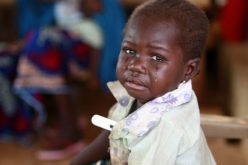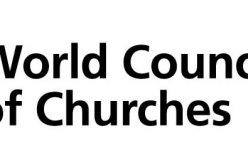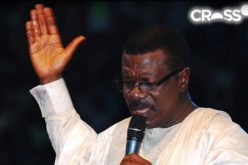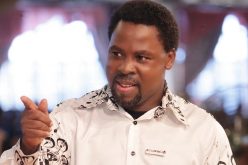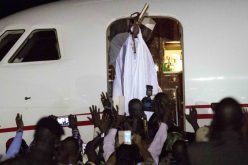 After an anxious wait for the 2019 Budget, the Finance Minister, Mr Ken Ofori-Atta, appeared in Parliament yesterday in his signature all-white ‘kaftan’ and delivered a 178-page speech in a motion that seeks to double investments in public infrastructure and lay a solid foundation for a Ghana that can survive beyond aid.
After an anxious wait for the 2019 Budget, the Finance Minister, Mr Ken Ofori-Atta, appeared in Parliament yesterday in his signature all-white ‘kaftan’ and delivered a 178-page speech in a motion that seeks to double investments in public infrastructure and lay a solid foundation for a Ghana that can survive beyond aid.
On the theme: ‘A stronger economy for jobs and prosperity,’ the 2019 budget is the government’s third and the country’s first revenue and expenditure estimation instrument since 2015 that does not bear traces of the International Monetary Fund (IMF) and its well-known restrictive conditionalities.
It follows a planned exit from the IMF’s extended credit facility (ECF) programme in December this year after it has helped to stabilise the economy from the fiscal slippages it suffered between 2012 and 2016 and returned it to the path of growth.
In a virtually two-hour long presentation characterised by boos and cheers, Mr Ofori-Atta unveiled an ambitious plan to build upon the gains achieved in the last two years and create jobs and prosperity for Ghanaians.
While the government assured the people that the 2019 budget provides hope for the future, the Minority in Parliament had said the budget could only be one of gloom and doom.
The plan aims to boost domestic revenue generation and rein in public spending to help grow the economy by 7.6 per cent and bring the fiscal deficit further down to 4.2 per cent of gross domestic product (GDP) next year.
It is anchored on a six-pillar strategy that also aims to industrialise the economy, modernise agriculture to increase productivity and reduce dependence on imports, while enhancing social interventions to benefit all Ghanaians.
In line with the focus on heavy investments in infrastructure, Mr Ofori-Atta announced that the government had raised capital investment by 55.7 per cent to GH¢8.5 billion in a historic gesture meant to stimulate growth in the public sector to help inspire economic growth.
Social partnership
Mr Ofori-Atta told the group of boisterous parliamentarians yesterday that the plan sought to build upon the macroeconomic stability achieved in recent times under the last half of the three-year ECF programme with the IMF.
In place of the IMF, the minister said his outfit was now institutionalising a social partnership with organised labour and employers, on one hand, and the government, on the other, to serve as a check on the management of the economy.
He said he was optimistic that the partnership would provide an avenue for the partners to deliberate on significant development matters and provide relevant solutions.
Fiscal targets
The minister said the government intended to raise some GH¢58.9 billion (17.1 per cent of rebased GDP) in revenues and grants and spend GH¢73.4 billion next year.
That should create a revenue gap (fiscal deficit) of GH¢14.5 billion, equivalent to 4.2 per cent of GDP, Mr Ofori-Atta said.
In 2017, the government surpassed its deficit target of 6.3 per cent of GDP with a healthier outturn of 5.9 per cent. It consequently set a deficit target of 4.5 per cent of GDP for 2018, which the minister said the government was on course to meet.
Revenue allocations
Next year’s total expenditure estimate of GH¢73.4 billion is 27 per cent above that of 2018.
On where the government would spend the amount, Mr Ofori-Atta said about GH¢19.4 billion, representing about 26.5 per cent of total domestic revenue, would be spent on wages and salaries.
He said the goods and services budget, which included the government’s priority projects, was also estimated at GH¢6.3 billion, representing 1.8 per cent of GDP.
“The annual growth of 38.8 per cent reflects a full provision made to cater for the government’s priority programmes, including the flagship free SHS policy,” the minister said.
He said GH¢18.6 billion had also been estimated for interest payments on public debt. Transfers to statutory funds, as well as all other earmarked funds, were estimated at GH¢13.8 billion, equivalent to 4.0 per cent of GDP, compared to 3.5 per cent in 2018.
Expected revenues
Touching on revenue estimates, the minister said total revenue and grants for 2019 was estimated at GH¢58.9 billion, equivalent to 17.1 per cent of the rebased GDP.It was also about 25.9 per cent higher than the GH¢46.8 billion estimated in the 2018 budget.
Mr Ofori-Atta said domestic revenue was estimated at GH¢57.8 billion. Of the amount, non-oil tax revenue was expected to rake in about GH¢42.9 billion, reflecting the impact of expected improvement in tax compliance and reforms in revenue administration.
He added that non-tax revenue, excluding oil, would also amount to GH¢6.5 billion, while receipts from upstream petroleum activities were projected to fetch some GH¢5.4 billion in 2019, equivalent to 1.6 per cent of GDP.
“Grants disbursements from development partners are estimated at GH¢1.1 billion, up from the projected outturn of GH¢773.2 million in 2018,” the Finance Minister added.
SOURCE: DAILY GRAPHIC


